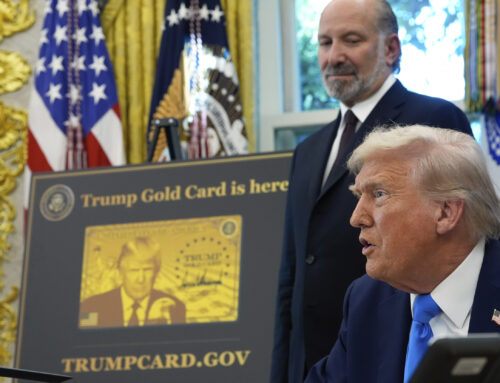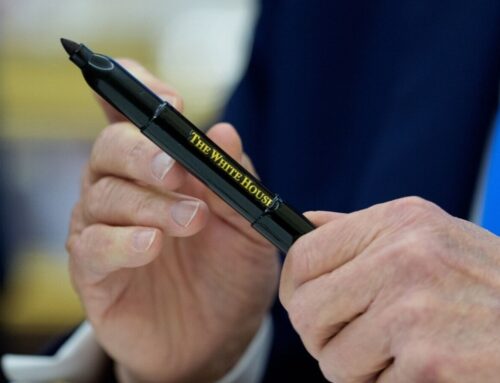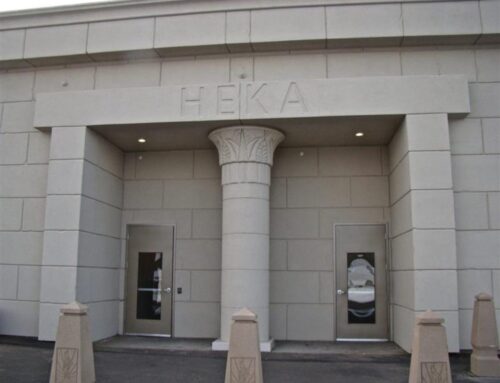Trump’s revised H-1B visa fees amount to 10% of the profits of five Indian IT firms
September 20, 2025
Bengaluru: US President Donald Trump signed an executive order on Friday that requires companies to pay $100,000 annually for every foreign worker brought under the H-1B visa, up from about $1,000 at present – a 9,900% increase. This could increase the visa fees to about 10% of the profits of India’s five largest recipients of H-1B visas, and prove the death knell for the country’s $283-billion IT services industry.
Tata Consultancy Services Ltd sponsored 5,364 H-1B Visas in 2025, while Cognizant Technology Solutions Corp sponsored 2,493 and Infosys 2,004, according to US Citizenship and Immigration Services data. LTI Mindtree Ltd sponsored 1,807 such visas and HCL Technologies sponsored 1,728.
With 13,396 H-1B visas sponsored in total by Indian companies, the new order would increase visa fees from about $13.4 million to $1.34 billion. Currently, a non-US worker on an H-1B Visa pays $215 and his employer contributes an additional $780 for the visa application.
Also Read |
Trump to impose $100,000 annual fee for H-1B visas
TCS ended FY25 with $5.74 billion in profit, while Cognizant’s Infosys’s net income totaled $3.16 billion and $2.24 billion. Cognizant follows a January-December financial year. LTI Mindtree and HCL Technologies’ net income totaled $520 million and $2.04 billion. The revised H-1B visa fee would amount to about 10% of these five companies’ $13.7 billion of profits.
“The H-1B is definitely finished if these fees materialise,” Siddharth Pai, co-founder of Siana Capital, a venture fund manager in Bengaluru. “All companies that use this visa class will have to readjust around it, including changing business models to the extent needed. So yes, all industries using this visa class will change.”
A spokesperson for Cognizant said, “We are reviewing the President’s proclamation to evaluate the potential implications. At this point, we do not have the details to respond accurately. Cognizant has established a resilient business model that creates flexibility to hire the best candidates for open roles, including robust local recruiting and hiring infrastructure.”
Emails sent to TCS, Infosys, HCLTech and LTIMindtree remained unanswered.
“Indian IT services players’ dependence on H-1B visas has fallen substantially over the years. In fact, US firms are now the biggest sponsors of H-1B,” said Abhishek Kumar, IT Research Analyst, JM Financial Institutional Securities Ltd. American companies including Amazon, Microsoft, Meta, Apple, and Google were the largest recipients of H-1B visas in 2025. “In the current cost-constrained demand environment, it might be difficult to pass on the higher cost to clients. That could lead to some impact on margins,” Kumar added.
Also Read |
In charts: The great Indian American dream falters under Trump
On Friday, Trump dismissed a question on whether technology company executives would be concerned about the action. “I think they’re going to be very happy. Everyone’s going to be happy. And we’re going to be able to keep people in our country that are going to be very productive people,” Trump said. “And in many cases, these companies are going to pay a lot of money for that and they’re very happy about it.”
For now, it is unclear whether companies sponsoring H-1B visas will recall their workers and how they will continue to work under the revised rates. That said, in the medium to long term, firms may be able to find ways to navigate the landscape better by either hiring even more local workers or offshoring or outsourcing more work.
“The H-1B nonimmigrant visa program was created to bring temporary workers into the United States to perform additive, high-skilled functions, but it has been deliberately exploited to replace, rather than supplement, American workers with lower-paid, lower-skilled labor,” read the order signed by Trump.
Also Read |
Trump’s crackdown on migrants: Will the American dream turn sour for Indians?
Search
RECENT PRESS RELEASES
Related Post





